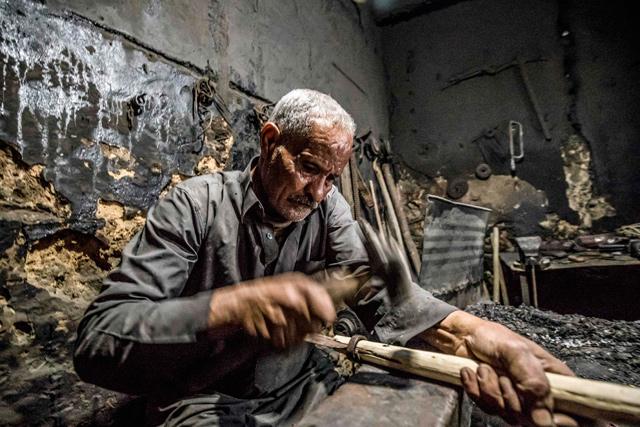- International News
- Thu-2020-12-03 | 03:24 pm

Youssef Diab drives his truck through the Egyptian oasis of Siwa, singing catchy songs in a local Berber dialect that clings to life despite the dominance of Arabic.
The UN has classified Siwi, the easternmost dialect of the Tamazight language spoken across North Africa as far as Morocco, as "endangered”.
But few adults in the oasis speak Arabic as their main language, and the children playing at the foot of the ancient local fortress talk and shout in Siwi.
Diab, a 25-year-old tourist guide with a colourful Berber flag in his back window, is convinced that the tongue will survive.
"Everyone uses it here,” he said.
The Berbers of Siwa are one of the main linguistic minorities in Egypt, the most populous Arabic-speaking country with some 100 million inhabitants and long the flag-bearer of Arab nationalism.
Located some 560 kilometres from Cairo, their oasis only came under state control when it was occupied by Mohammad Ali, the founder of modern Egypt, in 1820.
Its isolation "allowed Siwa and its inhabitants to keep their specific traditions and a language that sets them apart from mainstream Egyptian culture”, said Sociolinguist Valentina Serreli, who wrote her PhD thesis on the language in the oasis.
It wasn’t until the 1980s that Arabic became more common, due in large part to "tourism, mass media and mobility for higher education or for working purposes”.
Language still ‘dominant’
The UN in 2008 estimated that 15,000 people in the oasis, half the population, speak Siwi.
But Serreli estimates that the real figure is around 20,000.
"UNESCO considers the language ‘definitely endangered’ because ‘children no longer learn the language as mother tongue in the home’,” she said.
But "as far as I can tell, this is not true”.
"The language is dominant in... conversations, even between young peers.”
Ibrahim Mohamed, an elder of one of the region’s 11 tribes and a respected figure in Siwa, said Siwi was central to the "Amazigh identity” of the oasis.
And despite an influx of tourists in the last few decades, the oasis remains relatively isolated, accessible by a single road from the Mediterranean coast.
"Siwa is to the Siwis what water is to fish — they wouldn’t leave it for anything in the world,” said Mehdi Al Howeiti, the head of the local tourism office.
A son of the oasis, he studied elsewhere, but returned to Siwa to live.
Preservation efforts
Despite that devotion to their roots, Siwa residents face several challenges in protecting their language, including the cultural dominance of Arabic and the fact the tongue is only transmitted within families.
"In the past, our parents only spoke Siwi, which had nothing in common with Arabic,” said tribal elder Mohamed, who wore a black Libyan-style skullcap on his head.
"Today, the language is becoming closer and closer to Arabic.”
And while Egyptian curricula feature foreign languages, neither of the country’s main minority languages — Siwi and Nubian — is taught at schools.
"The language should be formally taught so it doesn’t disappear,” Mohamed said.
The local organisation "Children of Siwa” has led efforts to preserve the language.
Working with Moroccan and Italian partners, in 2012 it published a collection of songs, poems and proverbs in both Siwi and Arabic.
It was the product of two years work with 60 young local people and elders.
But despite those efforts, the book is now out of print and there isn’t enough money for another edition, said the association’s vice president Yahya Qenaoui.
"We need to do more to preserve our heritage,” he said.
"We can’t do 10 per cent of what we’d like to do... the association doesn’t get any funding.”
But Diab remains hopeful that the dialect will survive.
"At school, my son Ibrahim learns Arabic, he reads and writes it,” he said.
"But at home, he needs to speak Siwi.”













